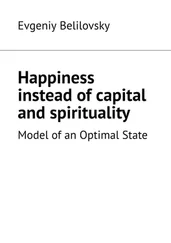She was always already awake by the time her daughter came in the room and began her patented three-step process for rousing her mother: first, for about a minute, simply stand beside the bed – very very close to the edge of the bed, ideally about a quarter-inch or so – and wait for the first sign of life. Second, begin to tap her mother on the shoulder with the flat of her hand, a cross between a tap and a pat, not violent, respectful even, but firm, insistent. Third, she would simply clamber over Rohinka, using her as a climbing-obstacle-cum-plaything like something at the recreation centre, and launch herself into the gap in the bed beside her. By that point there was no longer any mileage for Rohinka in pretending to be asleep.
Today was the same. She heard Fatima coming from the landing, her feet light but purposeful, in no hurry – she knew what she was doing. Mohammed, in his cot in their room, showed no sign of waking, as he tended not to do – a blessing, Rohinka supposed. At 5.30 a.m., one child was enough.
So today was the same as always. But today was different too, because today was the day that Mrs Kamal was taking a plane back to Lahore. Usman would be travelling with her, a trip with several overlapping agendas: he would help Mrs Kamal with the journey (though anyone less in need of help Rohinka couldn’t think of – still, her notional frailty had sometimes to be deferred to); he was himself claiming that he wanted to ‘chill out in Lahore for a bit’; and he had succumbed to his mother’s bullying to go and meet some potential marriage partners. Well, maybe it would work out for him. Usman had not been quite himself recently. Not that he spoke more, or showed more interest in the children, or anything like that, but he was less angry and more preoccupied. He had trimmed his beard and stopped irritating Ahmed by pretending to refuse to serve alcohol. Perhaps it was no more than that he was growing up a little.
As soon as Fatima came in the room and stood by the bed, Rohinka did something which amazed her daughter: she got up.
‘Mummy!’ said Fatima. ‘What are you doing?!’
‘Mamaji leaves today,’ said her mother. ‘There’s lots to do. You can help me.’
‘Shall I go and wake her up?’
Fatima, for all her indefatigability, her unstoppability, her take-no-prisoners approach to life, was very wary of her grandmother. (Who, predictably, doted on Mohammed.) She did not go into her room uninvited. It was tempting to let Fatima be Mrs Kamal’s early-morning alarm call; tempting, but probably not a great idea. Woken up in the wrong way, Mrs Kamal could start her last day in a bad mood and colour her departure for everyone. For a moment, Rohinka allowed herself to think about how nice it would be to get her home back: to get past that sense of always having somebody in your space. No one to encounter on a midnight trip to the bathroom, no one to hide birth-control medication from, no one extra to have to cook for or wash up after or do laundry for; it would be nice to have Mohammed back in his room, nice to just have their home back to themselves. Normality had never seemed more attractive. Only the four of them – even the thought felt like a long, relieving exhale.
‘Best stay with me. Or go downstairs and see what Daddy is doing.’
Fatima nodded, her expression serious: she had a mission. She moved around to her father’s side of the bed and got in.
An hour and a half later and they were all in the kitchen, good to go. Even Shahid, who under the circumstances could be forgiven for lying in and giving the occasion a miss, was there. He had been out of custody for three days and was still giddily happy – the main symptom being that he couldn’t stop talking. He had lost weight in jail, five or six kilos, and what with the fresh shave and haircut he’d had on getting out, was suddenly much more handsome. In fact he now looked like someone out of a film, a lean dark good-looking stranger with a past. If it had been him going to Lahore, Rohinka would be willing to bet that he wouldn’t come back single. Now he was sitting next to Fatima, coaxing her to eat her breakfast cereal by pretending to take huge mouthfuls of it himself, then flying it to her mouth making aeroplane noises. Mrs Kamal was sitting next to him, arranging her passport and plane ticket and other documentation on the table in front of her. On the other side of her was Mohammed in his high chair, barely awake. He was not cranky, but he was also not fully conscious, and he was making no attempt to eat or to interact with anyone: sitting there slumped sideways, chubby and skimpy-haired, he had the air of a Sultan recovering from a heavy lunch. Next to him his father too looked tired, and the coincidence made them look very alike; the resemblance, which Rohinka sometimes could and sometimes couldn’t see, was unmistakable. They looked like twins with a thirty-five-year age gap.
Mrs Kamal snapped her handbag closed.
‘It’s time,’ she said.
‘Usman’s brought the car round,’ said Ahmed. The two brothers would take their mother to the airport; Shahid had an appointment with Mrs Strauss the solicitor. They went into their farewells, and then came out in front of the shop, where Usman sat at the wheel of the Sharan with its hazard lights blinking. Ahmed loaded Mrs Kamal’s bag into the back of the people carrier. She had two suitcases and the biggest wheelie carry-on bag Rohinka had ever seen: with its handle extended, it was almost as tall as she was.
Standing in front of her mother-in-law, Rohinka felt a wave of the very last thing she had expected: affection. She had seen what Mrs Kamal had been like when Shahid was locked up, and would never forget it. She hoped Fatima and Mohammed would never be in trouble of that scale; if they ever were, she hoped she could live up to her mother-in-law’s example. But this wasn’t easy to put into words, and she made no attempt to begin. Perhaps she didn’t have to. Mrs Kamal stood in front of her, gripped her arm and said with an amused, knowing look, like a character actor taking applause at a curtain call:
‘Daughter. It has been eventful.’ And then Mrs Kamal turned to get into the car, saying, ‘And now time to see about that upgrade.’
November 2008
What’s the worst that can happen? Roger had always thought that was a stupid question. If you had difficulty imagining how bad things could become, all that meant was that you didn’t have much imagination.
There was no need to ask Roger’s former colleagues at Pinker Lloyd what was the worst that could happen. It was fantastic: the entire bank had gone under. The scandal about the rogue trader in Roger’s department had not been huge, but it had been just big enough to start rumours about the bank, which had caused people to take a sceptical look at the books just at the moment when capital markets were freaking out after the implosion of Lehman Brothers. People began to wonder about Pinker Lloyd’s exposure to short-term loans and its reliance on borrowing money cheaply, easily and quickly on the international money market. Credit dried up overnight: lenders withdrew their loans, clients withdrew their money, they had to ask the Bank of England for help, the Bank dithered and bingo, Pinker Lloyd was out of business. The bank had gone into receivership; its assets were being parcelled out and sold off; and everybody lost their jobs. Lothar had been publicly humiliated. Roger was thrilled. It couldn’t have happened to a nicer group of people.
So he ought to have been in a good mood, but now 51 Pepys Road was on the market. The asking price was £3.5 million. The estate agent, Travis, had told him that the price was a little ‘toppy’, but that ‘they might as well go for it’, on the basis that ‘what’s the worst that can happen?’
Читать дальше












